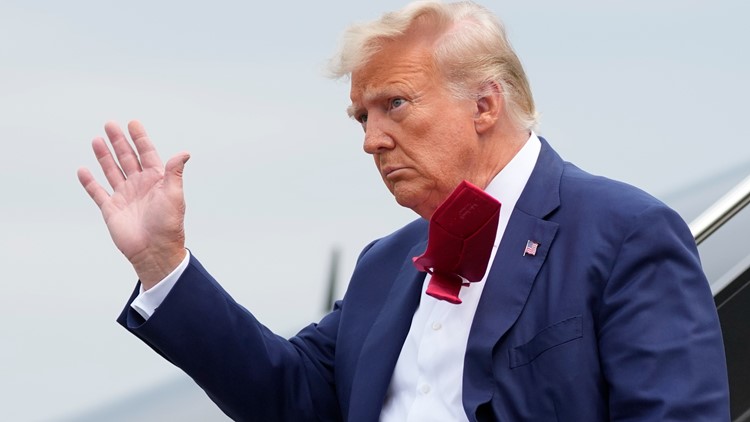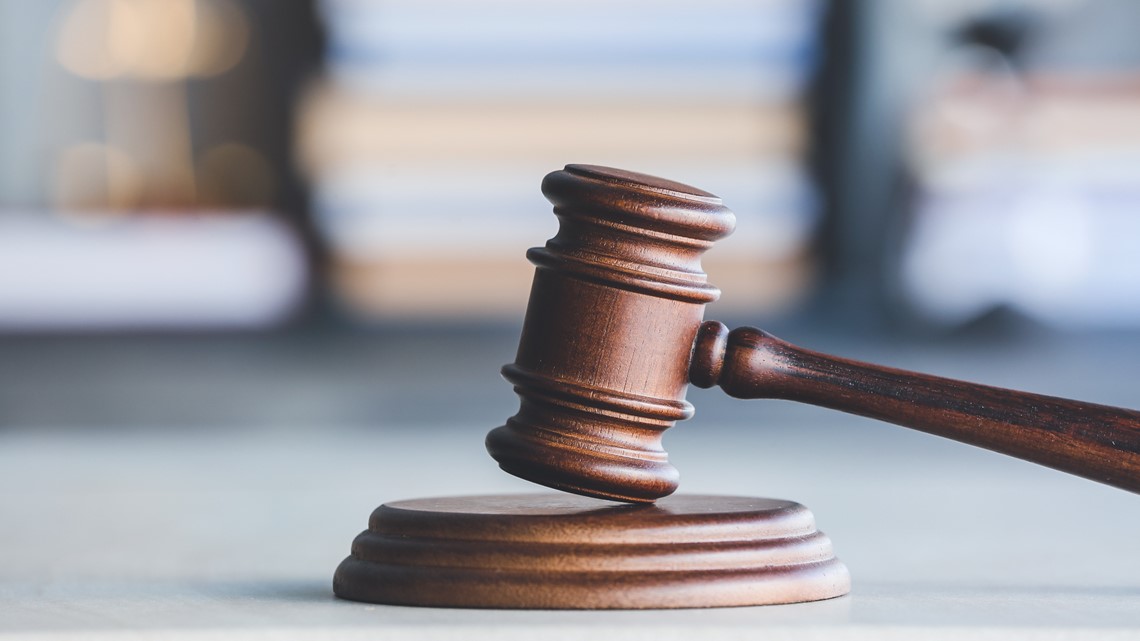The Constitution gives the president broad power to grant pardons in federal cases, but it’s unclear whether this would extend to a self-pardon.


Former President Donald Trump is currently facing three separate criminal indictments. Two of those indictments are federal and one has been brought by the state of New York.
In his most recent indictment, Trump was charged with four federal counts related to his efforts to overturn the 2020 election results. He is also facing 40 federal felony charges related to the mishandling of classified documents at his Mar-a-Lago estate in Florida.
In New York, Trump is charged with 34 state felony counts of falsifying business records in the first degree. VERIFY previously confirmed that Trump would not be able to pardon himself in the New York case if he is re-elected because the Constitution doesn’t allow presidential pardons for state crimes.
Several VERIFY readers have asked if Trump could pardon himself from the federal charges he is facing.
THE QUESTION
Could Trump pardon himself for any federal convictions if he is re-elected as president?
THE SOURCES
- U.S. Constitution, Article II Section 2
- Supreme Court of the United States, Ex parte Garland
- 1974 Department of Justice memo
- Brennan Center for Justice
- Nicolas Creel, assistant professor of business law and constitutional law expert at Georgia College and State University
- Matthew Mangino, criminal attorney, former elected prosecutor and adjunct political science professor at Thiel College
- Doron Kalir, clinical professor of law at Cleveland-Marshall College of Law
- Norman Eisen, senior fellow in governance studies at the Brookings Institution
THE ANSWER
![]()
The Constitution gives the president broad power to grant pardons in federal cases. However, legal experts say it’s an untested gray area as to whether that power extends to self-pardons.
WHAT WE FOUND
The United States Constitution gives the president broad power to issue pardons for federal convictions, which can reduce or eliminate the punishment for certain crimes.
A president’s pardon power could extend to their ability to grant a self-pardon. But legal experts say this is an untested gray area, since it’s never happened before and courts haven’t decided on the issue.
Article II, Section 2 of the Constitution establishes the president’s ability to issue pardons with two limitations.
First, the president can only pardon “offenses against the United States.” Legal experts told VERIFY that this refers only to federal crimes.
Second, a sitting president cannot pardon anyone in cases of impeachment, including themselves.
The Supreme Court has also ruled the president can pardon someone at any time after a crime has been committed, “either before legal proceedings are taken or during their pendency, or after conviction and judgment.”
But the Constitution does not specifically address whether the president can pardon themselves, nor has the Supreme Court ruled on the issue.
Some legal experts, like Georgia College and State University law professor Nicolas Creel, say Trump may be able to issue a self-pardon because the Constitution doesn’t explicitly address the scenario.
Matthew Mangino, a criminal attorney and adjunct political science professor at Thiel College, agrees.
“There’s nothing that says [Trump] can’t actually issue the pardon,” he said. “The question is, is it enforceable? And the courts would have to decide that.”
Legal experts have also cited a longstanding principle that “no person may be a judge in his or her own case.” The Department of Justice’s Office of Legal Counsel asserted in a 1974 memo that a presidential-self pardon would “collide” with this “fundamental rule,” the Brennan Center for Justice says.
“While the [DOJ] opinion is not binding, the reasoning of this opinion – centering on the principle that no person may be a judge in his or her own case – is compelling,” Norman Eisen, senior fellow in governance studies at the Brookings Institution, said in 2018.
Trump has previously indicated that he would pardon himself if he is convicted of crimes, writing on social media in 2018 that he has the “absolute right” to do so.
If Trump is convicted and re-elected, and he does attempt to pardon himself, VERIFY’s experts agree the issue would likely make its way to the Supreme Court.
The self-pardon “could be challenged in court as an abuse of the Constitution, a violation of the pardon power and not valid,” Eisen said.
The VERIFY team works to separate fact from fiction so that you can understand what is true and false. Please consider subscribing to our daily newsletter, text alerts and our YouTube channel. You can also follow us on Snapchat, Twitter, Instagram, Facebook and TikTok. Learn More »
Follow Us
Want something VERIFIED?
Text: 202-410-8808
.png)









 English (US) ·
English (US) ·